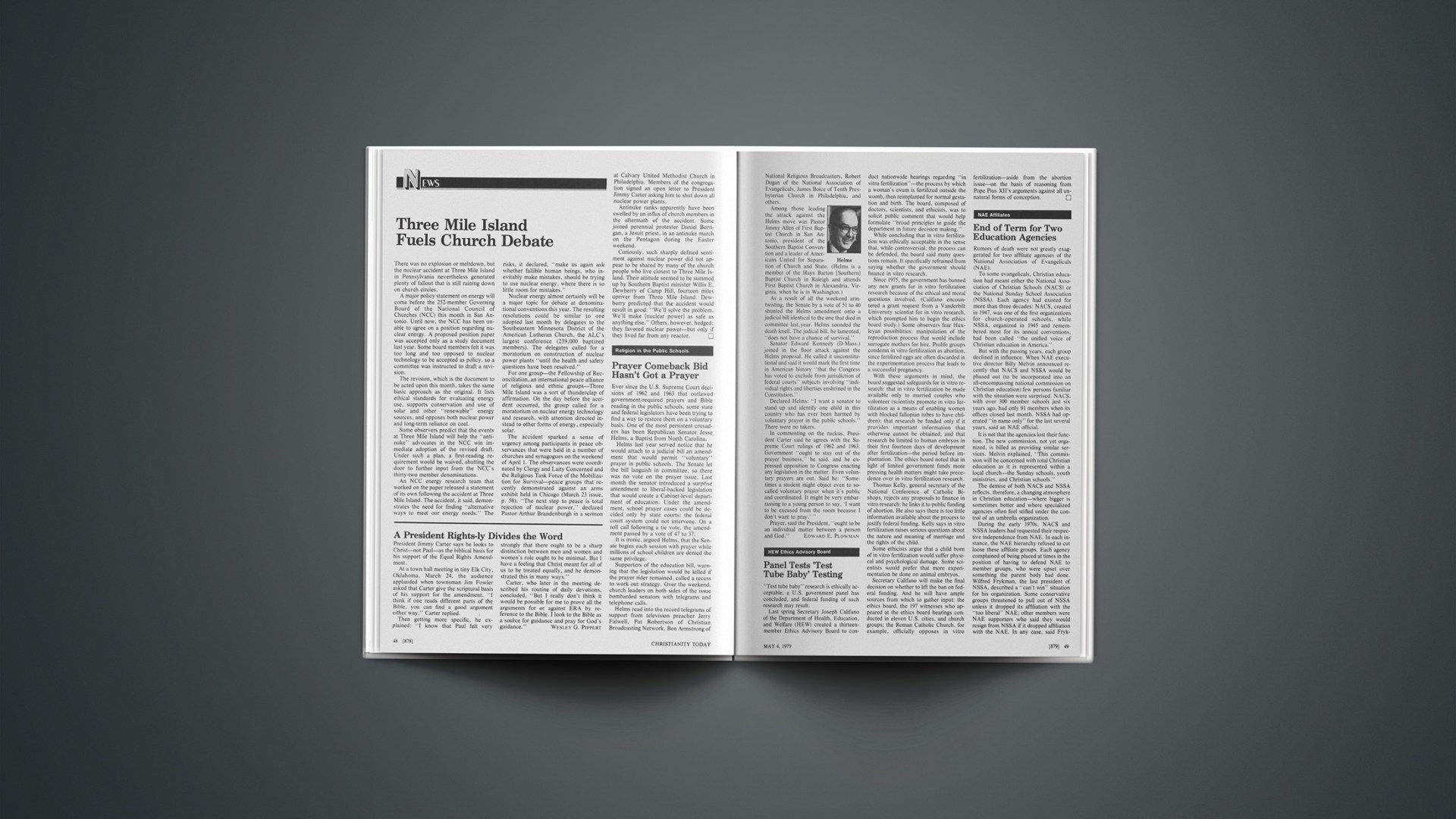“Test tube baby” research is ethically acceptable, a U.S. government panel has concluded, and federal funding of such research may result.
Last spring Secretary Joseph Califano of the Department of Health, Education, and Welfare (HEW) created a thirteen-member Ethics Advisory Board to conduct nationwide hearings regarding “in vitro fertilization”—the process by which a woman’s ovum is fertilized outside the womb, then reimplanted for normal gestation and birth. The board, composed of doctors, scientists, and ethicists, was to solicit public comment that would help formulate “broad principles to guide the department in future decision making.”
While concluding that in vitro fertilization was ethically acceptable in the sense that, while controversial, the process can be defended, the board said many questions remain. It specifically refrained from saying whether the government should finance in vitro research.
Since 1975, the government has banned any new grants for in vitro fertilization research because of the ethical and moral questions involved. (Califano encountered a grant request from a Vanderbilt University scientist for in vitro research, which prompted him to begin the ethics board study.) Some observers fear Huxleyan possibilities: manipulation of the reproduction process that would include surrogate mothers for hire. Prolife groups condemn in vitro fertilization as abortion, since fertilized eggs are often discarded in the experimentation process that leads to a successful pregnancy.
With these arguments in mind, the board suggested safeguards for in vitro research: that in vitro fertilization be made available only to married couples who volunteer (scientists promote in vitro fertilization as a means of enabling women with blocked fallopian tubes to have children); that research be funded only if it provides important information that otherwise cannot be obtained; and that research be limited to human embryos in their first fourteen days of development after fertilization—the period before implantation. The ethics board noted that in light of limited government funds more pressing health matters might take precedence over in vitro fertilization research.
Thomas Kelly, general secretary of the National Conference of Catholic Bishops, rejects any proposals to finance in vitro research: he links it to public funding of abortion. He also says there is too little information available about the process to justify federal funding. Kelly says in vitro fertilization raises serious questions about the nature and meaning of marriage and the rights of the child.
Some ethicists argue that a child born of in vitro fertilization would suffer physical and psychological damage. Some scientists would prefer that more experimentation be done on animal embryos.
Secretary Califano will make the final decision on whether to lift the ban on federal funding. And he will have ample sources from which to gather input: the ethics board, the 197 witnesses who appeared at the ethics board hearings conducted in eleven U.S. cities, and church groups; the Roman Catholic Church, for example, officially opposes in vitro fertilization—aside from the abortion issue—on the basis of reasoning from Pope Pius XII’s arguments against all unnatural forms of conception.










